Education Minister visits KI: ”Hearing about the potential gives me goosebumps”
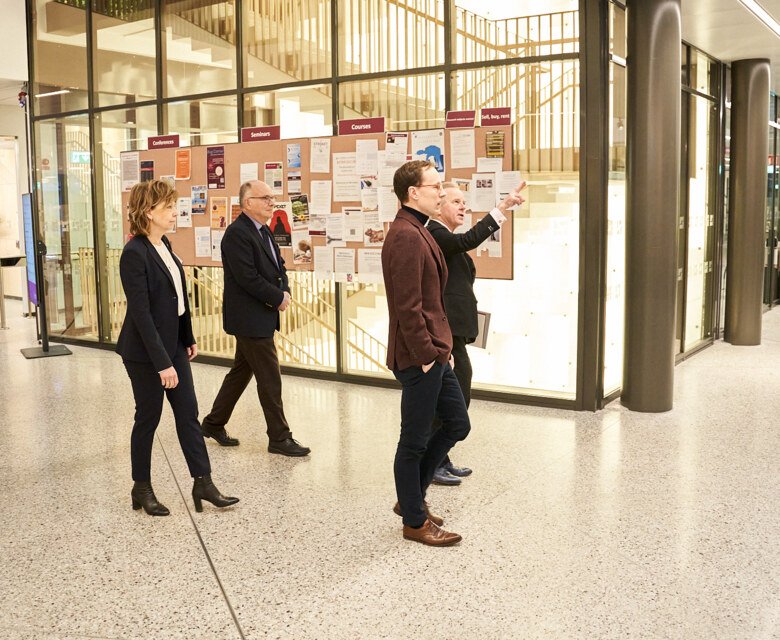
Minister for Education Mats Persson met researchers and students when he visited Karolinska Institutet on 1 February. Topics of discussion with the students included the conditions relating to clinical placements, student funding rules and the situation for overseas students and doctoral students. The researchers, for their part, talked about the progress being made in areas such as precision medicine and about KI’s preparedness for new health crises.
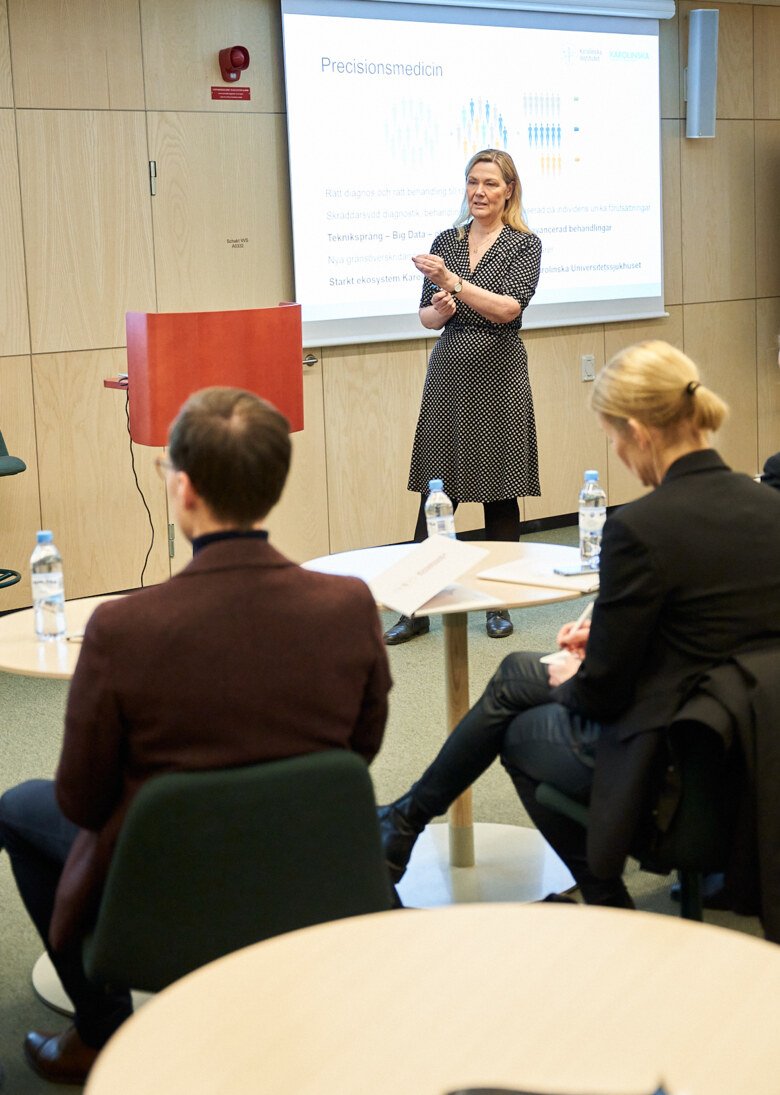
This was the Education Minister’s first visit to KI, and was introduced by Professor Anna Wedell at the Department of Molecular Medicine and Surgery and consultant at Karolinska University Hospital’s Centre for Inherited Metabolic Diseases. She presented the latest advances in the field of precision medicine, especially the work of the Centre for Inherited Metabolic Diseases, a specialist lab that is developing methods of diagnosing and treating rare congenital diseases by means of whole genome sequencing.
The establishment of a multidisciplinary approach, she pointed out, has led to the discovery of several new diseases, an achievement that has also helped in the development of new drug candidates.
“Precision medicine is leap forward the significance of which is hard to overestimate, and we’re seeing many instances where we can save more patients by giving them the right treatments,” she said, and went on to talk about her experiences from the Precision Medicine Centre Karolinska (PMCK).
“Wonderful to hear about the developments”
“It’s wonderful to hear about the developments being made in this field,” said Mats Persson, whose remit as Minister for Education includes responsibility for issues relating to higher education and research. “Hearing about the potential gives me goosebumps.”
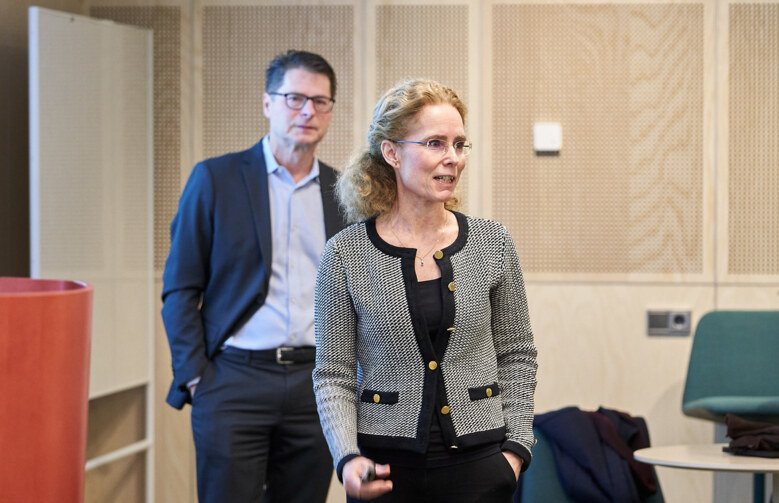
Professors Anna Norrby-Teglund and Hans-Gustaf Ljunggren at the Centre for Infectious Medicine looked back at the dramatic reorientation of research that took place during the COVID-19 pandemic.
They told the Minister of the strong international collaboration that made it possible for scientists to quickly develop a vaccine and about the study that KI is conducting on the how the vaccine affects people with compromised immunity.
Ali Mirazimi, adjunct professor working at the National Veterinary Institute and the Swedish Public Health Agency, talked about the promising development of a vaccine for the deadly Crimean Congo Haemorrhagic Fever virus and the value of strong international collaborations, especially when it comes to expertise on endemic diseases that have the potential to spread to other countries, such as Ebola.
Crash course in disaster medicine
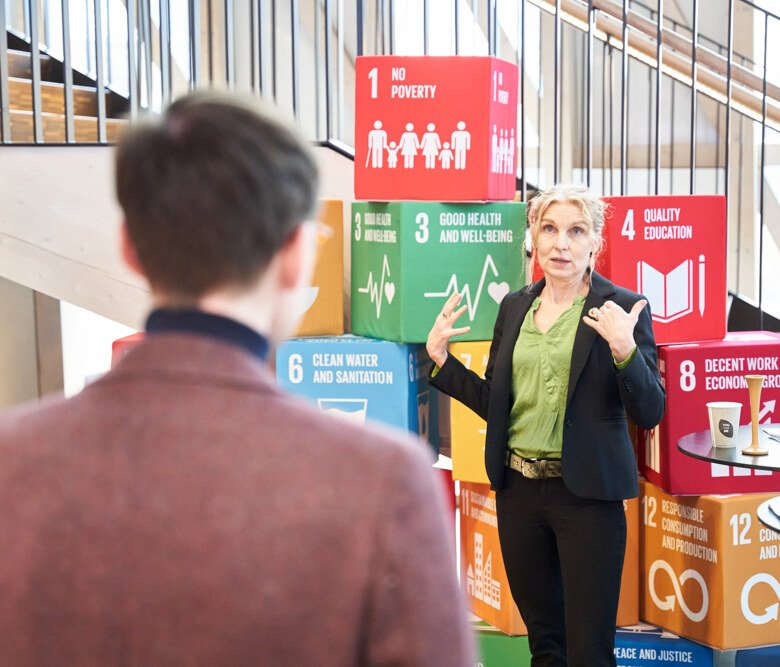
The Education Minister was then given a crash course on how to prioritise during a disaster led by Professor Johan von Schreeb, director of the Centre for Health Crises.
The Centre for Health Crises was established to draw lessons from the COVID-19 pandemic and other such events in order to raise preparedness for future health crises.
One of the founders of the centre is Anna Mia Ekström, clinical professor of infectious disease epidemiology. She alluded to Sweden’s strong international influence over the past four decades in aid and research collaboration in countries like Tanzania, where Sweden has contributed to the establishment of education programmes and research capacity on HIV. She particularly expressed her concerns about the government’s decision to cut its aid budget for development research.
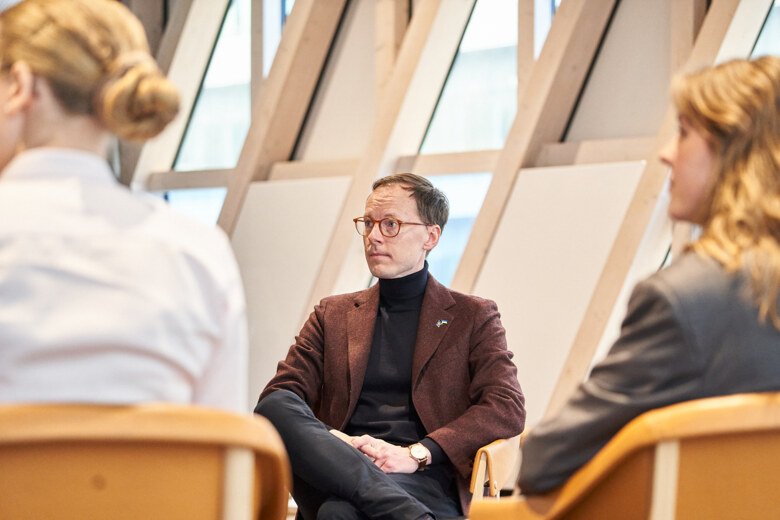
Topics of discussion with the students included the conditions relating to clinical placements, student funding rules and the situation for overseas students and doctoral students
The Minister spoke of a planned change in the law to make it easier for overseas doctoral students to stay in Sweden and measures to shorten the processing times at the Swedish Migration Agency. Today’s migration regulations were another subject for the minister and the KI management to discuss and one that concluded his visit.
